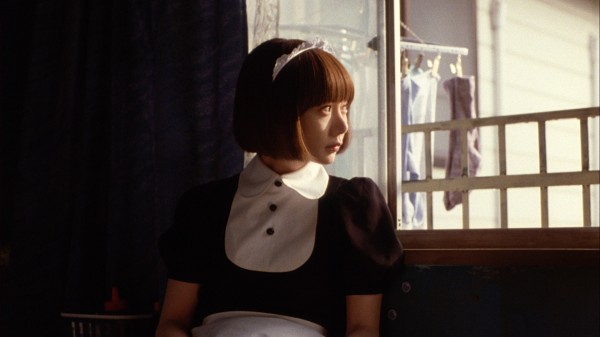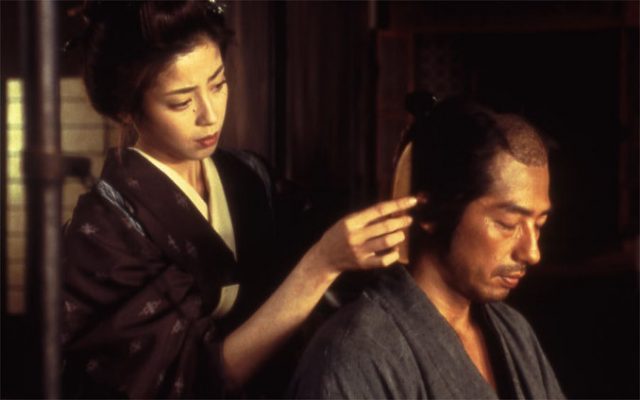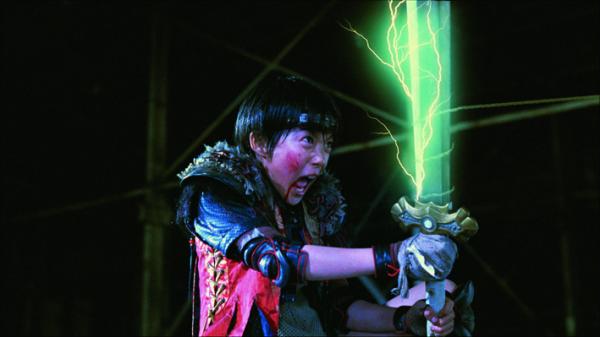21st CENTURY JAPAN: FILMS FROM 2001-2020
Japan Society
February 5-25, $8-$12 for three-day rental per film, $99 for all-access pass through February 4
film.japansociety.org
Japan Society and Japan’s Agency for Cultural Affairs have teamed up for “21st Century Japan: Films from 2001-2020,” an impressive collection of Japanese works from the last twenty years, streaming February 5-25. This inaugural ACA Cinema Project consists of thirty films, from recent classics to online US premieres as well as a focus on Kiyoshi Kurosawa, including a one-hour talk with the director, moderated by Abi Sakamoto. Among the primo filmmakers being represented are Sion Sono, Yukiko Mishima, Shinya Tsukamoto, Naomi Kawase, Hirokazu Kore-eda, Yoji Yamada, and Takashi Miike, many of whom are well known to regular attendees of Japan Society’s annual summer Japan Cuts festival.
“While it’s impossible to really capture the last two decades of Japanese narrative fiction filmmaking in its full breadth, we are excited to share at least the tip of the iceberg for these three weeks in February,” Japan Society deputy director of film K. F. Watanabe said in a statement. “Online or otherwise, a large majority of these titles remain unavailable to watch with English subtitles in the U.S., so I hope this series provides an opportunity to create new fans of filmmakers such as Naoko Ogigami or Shuichi Okita and expand any preconceptions of what modern Japanese cinema can offer.” Below are select reviews; keep watching this space for more recommendations.

Nozomi (Bae Doona) dreams that there’s more to life in Hirokazu Kore-eda’s Air Doll
AIR DOLL (Hirokazu Kore-eda, 2009)
Over the last twenty-five years, Japanese filmmaker Hirokazu Kore-eda has compiled a remarkable resume, directing fourteen narrative features and five documentaries that investigate such themes as memory and loss. His 2009 film, Air Doll, examines loneliness through the eyes of a blow-up doll come to life. Bae Doona stars as Nozomi, a plastic sex toy owned by Hideo (Itsuji Itao), a restaurant worker who treats her like his wife, telling her about his day, sitting with her at the dinner table, and making love to her at night. But suddenly, one morning, Nozomi achieves consciousness, discovering that she has a heart, and she puts on her French maid costume and goes out into the world, learning about life by wandering through the streets and working in a video store, always returning home before Hideo and pretending to still be the doll. Adapted from a manga by Yoshiie Goda, Air Doll is another beautiful, meditative study from Kore-eda. Nozomi’s wide-eyed innocence at the joys of life comes sweet and slowly, played with a subtle wonderment by South Korean model and actress Bae (Sympathy for Mr. Vengeance, The Host). The film does, however, take one nasty turn and is a bit too long, at more than two hours. But it’s still another contemplative gem from the masterful director of Maborosi, Nobody Knows, Shoplifters, and Still Walking.

Hiroyuki Sanada gets ready to fight in Yoji Yamada’s The Twilight Samurai
THE TWILIGHT SAMURAI (Yoji Yamada, 2002)
Hiroyuki Sanada is outstanding as the title character in Yoji Yamada’s period drama, The Twilight Samurai, playing a lowly ronin who chooses to take care of his family after his wife dies, instead of wielding his sword. During the day, he works as a bean counter, then goes straight home to his aging mother and two young daughters. When he learns that a childhood friend, Tomoe (Rie Miyazawa), is divorcing her abusive husband, he ends up fighting for her honor. But instead of battling his opponent with a sharp sword, he pulls out a piece of wood. Word of his skill reaches the highest level of his clan, who wants him to kill for them, setting up an emotional and psychological inner struggle for the quiet and shy family man. The Twilight Samurai, which was nominated for a Best Foreign Language Film Oscar, is a different kind of samurai movie, focusing more on love and loss than blood and vengeance.
THE GREAT YOKAI WAR (YÔKAI DAISENSÔ) (Takashi Miike, 2005)
Mixing in a liberal amount of Time Bandits with The Wizard of Oz, throwing in a little Hayao Miyazaki, and adding dashes of Raiders of the Lost Ark, The Lord of the Rings, Gremlins, Return of the Jedi, Labyrinth, and even Kill Bill, Takashi Miike has wound up with an entertaining fantasy film for both kids and adults. Known more for such ultraviolent, hard-to-watch frightfests as Audition and Ichi the Killer, Miike reveals his softer side in this genre film based on a yokai manga by Shigeru Mizuki (who also plays the Demon King). Ryunosuke Kamiki is splendid as Tadashi, a young city boy taking care of his grandfather (Hiroyuki Miyasako) in a country village, where he is chosen at a local festival as the mythical Kirin Rider, the guardian of peace and friend of justice. Soon he finds himself in a real battle between good and evil, taking him from the heights of the Great Goblin’s mountain cave to the depths of a seedy underworld run by the very white Agi (Chiaki Kuriyama) and powerful mastermind Katou Yasunori (Etsushi Toyokawa). Joined by yokai spirits Kawahime (Mai Takahashi), Kawatarou (Sadao Abe), and the oh-so-cute Sunekosuri, Tadashi fights to save the human world, wielding his special sword against a phalanx of mechanical robots and other villainous creatures. At more than two hours, The Great Yokai War is at least twenty minutes too long and would have greatly benefited by the excision of one very silly subplot. But it is still a charming tale from one of the true masters of horror.
